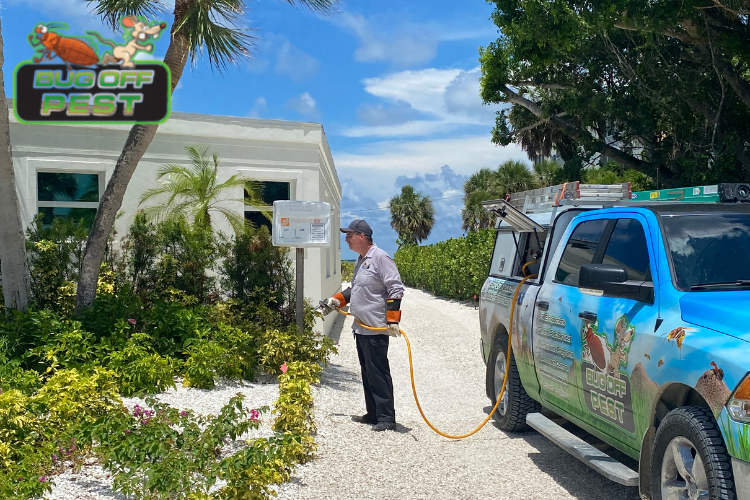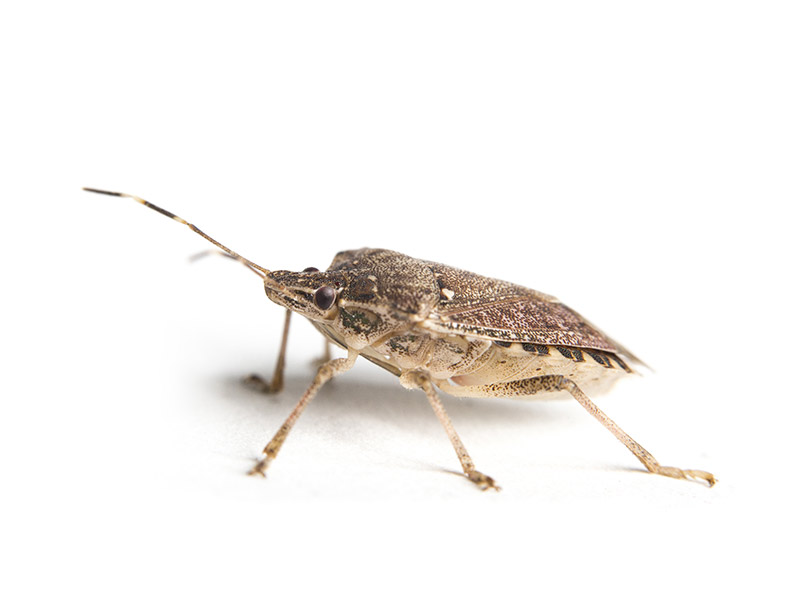Trusted Pest Control in Port Charlotte to defend your home and family.
Trusted Pest Control in Port Charlotte to defend your home and family.
Blog Article
Exploring Innovative Methods and Products for Efficient Insect Control
The landscape of pest control is progressing, noted by the appearance of cutting-edge techniques and items created to enhance efficiency and sustainability. From wise traps outfitted with advanced surveillance systems to organic methods that use natural killers, these innovations offer a standard change in just how we come close to pest administration.
Smart Traps and Keeping Track Of Solutions
Exactly how can modern innovation enhance pest monitoring? One substantial development is the development of wise catches and monitoring systems, which supply real-time information and analytics for effective bug control. These systems use sensors and cordless technology to detect parasite activity, alerting building managers and pest control experts to problems prior to they intensify.
Smart catches are outfitted with features such as bait terminals that attract parasites and catch them successfully. These traps can be kept track of from another location, enabling prompt treatments and decreasing the demand for considerable chemical applications. In addition, the integration of artificial intelligence formulas enables these systems to set apart in between target insects and non-target varieties, improving the precision of bug control measures.
Furthermore, the information gathered from smart catches can be assessed to identify patterns in bug behavior and environmental factors adding to invasions (Pest Control in Port Charlotte). This information is very useful for developing targeted pest monitoring approaches customized to particular settings. By embracing clever traps and keeping an eye on systems, parasite control experts can boost their functional effectiveness and minimize the environmental impact of parasite management, inevitably leading to more secure and extra sustainable practices in the industry
Biological Pest Control Techniques
Making use of natural killers and parasites, organic pest control approaches supply an eco friendly choice to chemical therapies. This technique includes the introduction or enhancement of particular microorganisms that can naturally manage pest populaces, thus minimizing reliance on synthetic pesticides. Typical instances consist of the usage of ladybugs to control aphid infestations and parasitic wasps to target caterpillars.

Organic control can be categorized into 3 main approaches: timeless, augmentative, and conservation. Timeless organic control entails importing natural opponents from the pest's indigenous environment, while augmentative control involves enhancing the population of existing all-natural enemies through launches. Preservation methods concentrate on developing problems that sustain these valuable microorganisms in the environment.
The efficiency of biological pest control rests on understanding the complicated interactions within environments. It typically needs a detailed analysis of pest characteristics and the life cycles of both the parasites and their natural adversaries. While organic techniques might not give immediate results like chemical options, they contribute to long-term pest administration and environment wellness. As recognition of ecological concerns grows, organic parasite control techniques are increasingly identified for their sustainable duty in incorporated bug monitoring programs.
Eco-Friendly Chemical Alternatives
Environmentally friendly chemical options give a sensible remedy for pest administration that reduces ecological influence while properly managing pest populaces. These choices are stemmed from natural resources and are carefully developed to target certain parasites without damaging useful organisms, making them an essential part of sustainable parasite control strategies.
Amongst the most reliable environment-friendly alternatives are plant-based insecticides, such as neem oil and pyrethrin, which are derived from the seeds and blossoms of different plants. These materials interfere with the life process of insects, lowering their populations without the poisonous effects connected with standard pesticides - Pest Control in Port Charlotte. Furthermore, essential oils like peppermint and clove oil exhibit repellent properties, better improving their utility in insect management

Additionally, environment-friendly chemical options typically damage down quicker in redirected here the atmosphere, decreasing the threat of dirt and water contamination. This particular aligns with the increasing consumer demand for lasting methods in farming and urban bug control. As research proceeds to breakthrough, the growth of cutting-edge environment-friendly solutions will certainly even more boost efficacy and broaden application locations, making it possible for pest monitoring experts to embrace greener, more responsible approaches in their methods while safeguarding human wellness and the setting.
Pheromone Interruption Techniques
An additional cutting-edge strategy in lasting parasite management is using scent disturbance strategies. These approaches manipulate the all-natural chemical signals, or pheromones, that bugs make use of for interaction, specifically in breeding behaviors. By interfering with these signals, insect look at more info populaces can be successfully managed without considering hazardous chemicals.
Scent catches are commonly utilized in this approach. Over time, this can lead to a substantial decrease in bug populations.

Integrated Insect Management Approaches
Effective pest control often requires a comprehensive approach, and Integrated Bug Administration (IPM) strategies provide a structure for accomplishing this objective. IPM integrates numerous management methods to reduce parasite populaces while reducing reliance on chemical pesticides. This complex method begins with comprehensive tracking and recognition of parasites, enabling for targeted treatments based on certain pest stress.
Social methods, such as plant turning and hygiene, play a crucial duty in protecting against insect establishment. Biological controls, including all-natural predators and parasitoids, are utilized to maintain parasite populaces at manageable levels. When required, discerning chemical therapies are applied, stressing lower toxicity to non-target types and the atmosphere.
Additionally, education and outreach are important parts of IPM, advertising awareness amongst stakeholders concerning lasting techniques and pest life process. The versatility of IPM permits experts to react efficiently to changing parasite characteristics and ecological conditions. By using this holistic method, IPM not just enhances bug control performance but likewise adds to lasting environmental equilibrium. Eventually, Integrated Bug Monitoring stands for a forward-thinking remedy that lines up farming efficiency with environmental stewardship, making it essential in modern pest control techniques.

Conclusion
To conclude, the assimilation of cutting-edge techniques and products for effective bug control represents a substantial advancement in lasting bug monitoring. Smart catches and keeping an eye on systems, organic bug control approaches, eco-friendly chemical alternatives, and pheromone interruption strategies jointly enhance the performance of parasite management useful source strategies. By adopting these approaches, the reliance on conventional pesticides can be decreased, advertising ecological health while making certain effective parasite control. Proceeded research study and growth in these locations will certainly further boost parasite monitoring methods.
Report this page